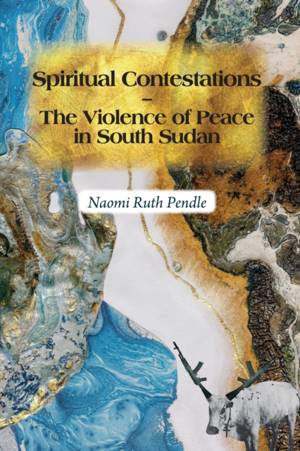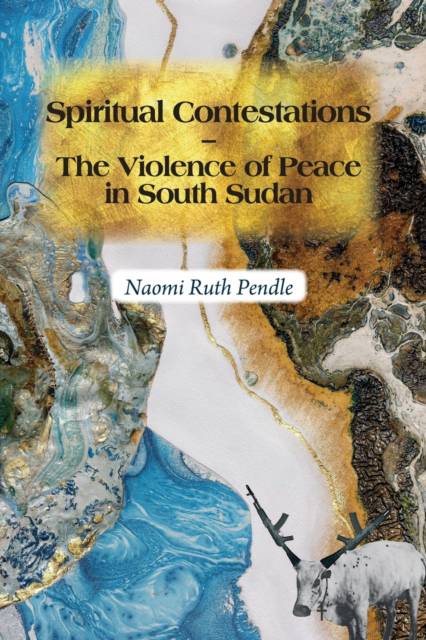
Bedankt voor het vertrouwen het afgelopen jaar! Om jou te bedanken bieden we GRATIS verzending (in België) aan op alles gedurende de hele maand januari.
- Afhalen na 1 uur in een winkel met voorraad
- Gratis thuislevering in België vanaf € 30
- Ruim aanbod met 7 miljoen producten
Bedankt voor het vertrouwen het afgelopen jaar! Om jou te bedanken bieden we GRATIS verzending (in België) aan op alles gedurende de hele maand januari.
- Afhalen na 1 uur in een winkel met voorraad
- Gratis thuislevering in België vanaf € 30
- Ruim aanbod met 7 miljoen producten
Zoeken
Spiritual Contestations - The Violence of Peace in South Sudan
Naomi Ruth Pendle
€ 63,45
+ 126 punten
Omschrijving
A fresh perspective on conflict and peace-making that highlights the cosmologies and invisible entities that state, society and religious authorities draw on to claim or reclaim legitimacy and control. Peace-making can be a violent, arbitrary assertion of power. At the same time, the spheres of power, politics and religion are rarely discrete: when governments behave like gods through demonstrations of arbitrary violence, the remaking of moral and spiritual worlds can provide radical ways to contest the brutality of both conflict and peace. This book is an exploration of the way that Nuer- and Dinka-speaking communities living around the Bilnyang and connected river systems in Warrap and Unity States in South Sudan have experienced peace-making and conflict in an increasingly militarized South Sudan. The book traces patterns of violence in peace-making back to colonial and mercantile activities in the late 19th century, but focuses on the period since the 1980s. Challenging dominant understandings of conflict and peace centred on neo-liberal brokerage and settlements or a politics entirely driven by instrumentalist, neo-patrimonial, marketized logics, this book shows how South Sudanese authorities, particularly religious authorities, have contested the legitimacy of violence and peace by drawing on divinely inspired notions of authority and norms of conduct. Drawing on archive, ethnographic and oral history research, as well as participant observations of the elite peace negotiations since 2013, Pendle describes the peace-making efforts of a range of actors from international diplomats to chiefs, Nuer prophets and local priests, to show how peace-making in South Sudan became an instrument used by actors to build authority by reshaping rituals, remaking hierarchies and re-encoding moral protest against oppressive regimes. By recasting anthropological and historical scholarship on divine authorities and moral communities in South Sudan, this book brings a new perspective to conflict, peace and governance that will be invaluable not only to scholars but to policymakers, practitioners and NGOs.
This book is available as Open Access under the Creative Commons license CC-BY-NC.
This book is available as Open Access under the Creative Commons license CC-BY-NC.
Specificaties
Betrokkenen
- Auteur(s):
- Uitgeverij:
Inhoud
- Aantal bladzijden:
- 322
- Taal:
- Engels
- Reeks:
- Reeksnummer:
- nr. 12
Eigenschappen
- Productcode (EAN):
- 9781847013385
- Verschijningsdatum:
- 18/04/2023
- Uitvoering:
- Paperback
- Formaat:
- Trade paperback (VS)
- Afmetingen:
- 156 mm x 234 mm
- Gewicht:
- 453 g

Alleen bij Standaard Boekhandel
+ 126 punten op je klantenkaart van Standaard Boekhandel
Beoordelingen
We publiceren alleen reviews die voldoen aan de voorwaarden voor reviews. Bekijk onze voorwaarden voor reviews.









